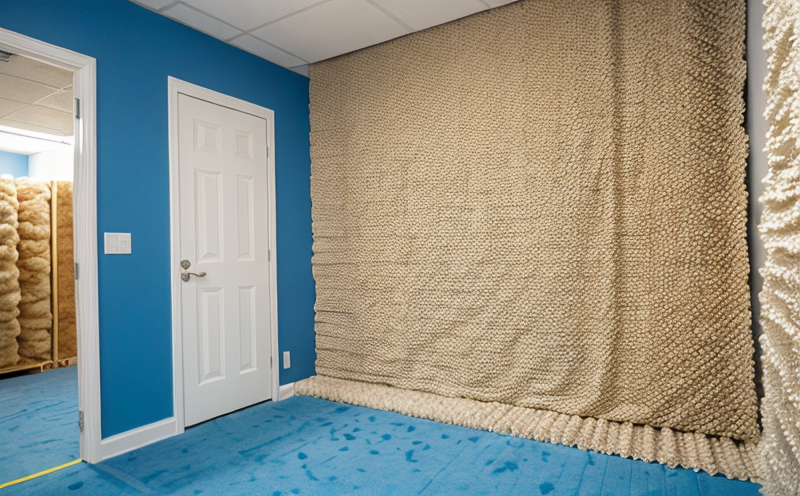ISO 717-1 Rating of Sound Insulation in Buildings
The ISO 717 series addresses noise insulation in buildings. Specifically, ISO 717-1 provides the method for rating sound insulation using a laboratory test procedure. This standard is critical for ensuring that building components meet specified performance criteria regarding their ability to attenuate airborne and impact sounds.
Accurate measurement of sound insulation requires controlled conditions in both source and receiver spaces, as well as careful specimen preparation. The test involves placing the sample between two rooms where noise sources are introduced into one room while measurements of the transmitted sound level are taken in the other. Compliance with this standard is essential for architects, engineers, and builders to ensure that new constructions or renovations achieve desired acoustic performance.
The standard specifies detailed procedures for conducting reverberation room tests according to ISO 140-2 (formerly ISO 717). It describes how to prepare samples, install them in a test setup, generate sound inputs, measure resulting outputs, and analyze data. By adhering strictly to these guidelines, laboratories can produce reliable ratings that reflect the true performance of materials used within buildings.
Compliance with ISO 717-1 is important not only for regulatory compliance but also for maintaining high-quality construction practices. It helps ensure that structures are constructed in such a way as to minimize noise pollution and provide occupants with quieter environments, which contributes positively towards overall well-being.
Given the increasing focus on sustainable development and green building initiatives, meeting these standards becomes even more crucial. Proper implementation ensures that buildings contribute less noise disturbance to surrounding areas while enhancing indoor comfort levels for residents or workers inside them.
Industry Applications
The ISO 717-1 Rating of Sound Insulation in Buildings has wide-ranging applications across various sectors. Here are some key areas where this test is particularly relevant:
- Residential Construction: Ensures new homes meet necessary sound insulation standards.
- Commercial Real Estate: Guarantees office spaces and retail environments maintain appropriate acoustic levels.
- Schools & Hospitals: Helps create quieter learning and healing environments by minimizing noise pollution.
- Industrial Facilities: Minimizes interference between adjacent operations through effective sound barriers.
| Industry Sector | Type of Building | Primary Objective |
|---|---|---|
| Residential | New Homes | Achieve required sound insulation ratings to meet local regulations. |
| Commercial | Office Spaces | Create more productive working environments by reducing background noise levels. |
Why Choose This Test
The ISO 717-1 sound insulation test is chosen for its reliability and accuracy. It offers several advantages over other methods:
- Standardized Procedure: Ensures consistent results across different laboratories.
- Regulatory Compliance: Helps companies adhere to national and international standards related to noise pollution control.
- Informed Decision-Making: Provides valuable data that influences design choices, material selection, and construction practices.
The test provides a clear picture of how effective various building materials are at reducing sound transmission. For instance, understanding the performance characteristics of different types of insulation can help architects select appropriate products for specific projects based on expected usage patterns and environmental factors.
Moreover, by ensuring compliance with ISO 717-1, organizations demonstrate their commitment to sustainability goals by minimizing unnecessary noise pollution while enhancing occupant comfort. This makes it an attractive option for those looking to improve both the quality of life within buildings and their reputation as responsible corporate citizens.
Competitive Advantage and Market Impact
Meeting ISO 717-1 standards can give businesses a significant competitive edge in several ways:
- Enhanced Reputation: Clients trust providers who adhere to recognized international standards like ISO.
- Informed Decision-Making: Accurate data leads to better decisions regarding product development and project execution.
- Potential for Innovation: Understanding the nuances of sound insulation can inspire new product ideas or improvements.
Compliance also opens up opportunities for collaboration with other industry players who value quality assurance. It fosters trust among stakeholders, including clients, employees, and regulators. Additionally, it enhances a company's ability to attract and retain top talent by demonstrating its commitment to excellence in all aspects of operation.





